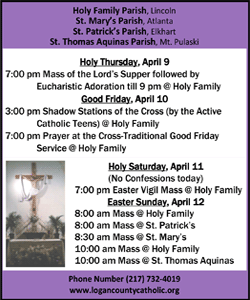Deadly clashes erupt in Syria's Idlib hours into ceasefire deal
 Send a link to a friend
Send a link to a friend
 [March 06, 2020]
By Suleiman Al-Khalidi and Jonathan Spicer [March 06, 2020]
By Suleiman Al-Khalidi and Jonathan Spicer
AMMAN/ISTANBUL (Reuters) - Deadly clashes
erupted in southern Idlib on Friday, hours into a ceasefire deal between
Russia and Turkey aimed at ending the fighting in the last rebel-held
enclave in Syria.
A war monitor and a rebel source said the fighting broke out in the
Jabal al-Zawiya region between Syrian government forces and jihadist
insurgents of the Turkistan Islamic Party. Fifteen people were killed,
the Syrian Observatory said.
Residents and opposition forces said the violence had abated elsewhere.
But the clashes underlined the fragility of Thursday's deal between
Russia, which backs President Bashar al-Assad's forces, and Turkey.
Ankara supports rebel fighters but has less sway over hardline jihadists
who control large parts of Idlib.
The ceasefire aims to contain a conflict that has displaced nearly a
million people in three months in northwest Syria.
Turkish President Tayyip Erdogan had vowed to reverse recent advances by
Assad's forces in Idlib. However, Thursday's deal froze the conflict
along existing front lines, cementing significant gains by Syrian
government forces.
"There may be criticism but our priority was for a ceasefire and we
achieved it. Some goals were not reached but that goes for both sides,"
a senior Turkish official said.

Several previous deals to end the fighting in Idlib have collapsed.
Analysts and residents said they feared the latest ceasefire would also
fizzle out as it did not address the humanitarian crisis or air
protection in any detail.
"Any ceasefire arrangement in Idlib, unless it has a no-fly zone
dimension, is bound to fail. Deals in the past never de-escalated. They
merely froze the crisis until the next escalation," said Galip Dalay,
IPC-Mercator fellow at the German Institute for International and
Security Affairs.
Arriving for a meeting of European Union foreign ministers in Zagreb,
Dutch minister Stef Blok said the ceasefire deal should be cemented with
a no-fly zone to stop any further bombing of hospitals.
HUMANITARIAN CRISIS
The recent fighting sparked what the United Nations says may be the
worst humanitarian crisis yet in a war that has driven millions from
their homes and killed hundreds of thousands.
Russia had repeatedly played down any talk of a refugee crisis and
accused Turkey of violating international law by pouring troops and
equipment into Idlib since early last month. About 60 Turkish troops
have been killed in that time.
Turkey, which has the second largest army in the transatlantic NATO
alliance, has tried to resist the Syrian government advance and prevent
a wave of refugees over its southern border. It already hosts 3.6
million Syrian refugees.
[to top of second column]
|

Syrian army soldiers gesture from a military vehicle in southern
Idlib province, Syria in this handout released by SANA on March 5,
2020. SANA/Handout via REUTERS

The ceasefire deal establishes a security corridor stretching 6 km
(3.7 miles) to the north and south of Idlib's east-west M4 highway,
where joint Russian-Turkish patrols will begin on March 15 -
effectively advancing Russia's presence further north into Idlib.
Russian President Vladimir Putin said on Thursday he hoped the deal
"will serve as a good basis for a cessation of military activity in
the Idlib de-escalation zone".
Erdogan said the sides would work together to supply aid to Syrians
in need, but that Turkey retained the right to "respond to all
(Syrian) regime attacks in the field."
"VERY TENSE CALM"
Residents and fighters in the region said the front lines, which
have seen heavy air strikes by Russian and Syrian jets and intense
Turkish artillery and drone strikes on Assad's forces, were quiet in
much of the region after the midnight ceasefire came into effect.
"There is a ceasefire but there are violations," said Abdul Ghani al
Sheikh, a rebel fighter from the Turkey-backed Failaq Sham rebel
group. He said government forces were shelling Jabal al Zawya and
Atareb, to the south and east of Idlib.
"But the situation overall is better. Everyone thinks this is all
temporary and Turkish reinforcements are still coming."
The Syrian Observatory for Human Rights monitoring group reported
that the first eight hours of the ceasefire had passed with
"relative calm", and the skies had been free of Syrian government
and Russian warplanes.
A Syrian state reporter, broadcasting from the town of Saraqeb
recaptured by Syrian forces last week, said they were reinforcing
positions at the frontlines.
The ceasefire deal did not detail a "safe zone" or describe how
displaced people could return to the homes they have fled to escape
the Russian-backed offensive.

"No one has mentioned a safe zone or areas of withdrawal. There is
no pullout, and where will the displaced go (who) would never accept
going to (Assad) regime areas? What we have heard is not
comforting," said Ahmad Rahhal, a former general in the Syrian
government forces who defected to the opposition.
(Additional reporting by Orhan Coskun in Ankara, Daren Butler in
Istanbul, Samar Hassan in Cairo and Tom Perry in Beirut; Editing by
Dominic Evans and Nick Tattersall)
[© 2020 Thomson Reuters. All rights
reserved.] Copyright 2020 Reuters. All rights reserved. This material may not be published,
broadcast, rewritten or redistributed.
Thompson Reuters is solely responsible for this content. |